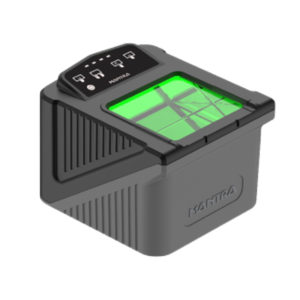03 Jun Is Employee Tracking Legal?
Posted at 06:02h
in
Time Clock
by Farzi Ahmed
Is Employee Tracking Legal?
In my last post, I wrote about tracking employees using GPS. How many of you wondered if that’s LEGAL?
Employees who are constantly on the move – salesmen, delivery guys, drivers, etc may think they have more freedom than their colleague who has desk job. The decreasing costs of GPS technologies, both in company vehicles and handheld devices may be changing that, giving employers new ways to keep track of their employees. As a result, concerns over employee privacy are on the rise.
Many employees have filed legal suits against their employers for intruding into their private space. In some cases, the employee was relieved, but in most cases, the employer walked out guilt-free.
So, are there any legalities an employer should be aware of before handing out the GPS device to their mobile workforce? Well.. the answer is Yes!
Monitoring employees using GPS tracking devices has been approved by the courts. The rationale being: Workplace surveillance is completely legal and common. If the workplace is the car or other location, shouldn’t bosses have a way to monitor their employees?
Having said that, firstly, employers should draw a line between work and personal time. The key to keeping track of employees using GPS is to do so only when the employees are supposed to be working not to track their whereabouts after business hours if he takes their GPS-enabled device home with them regularly. There should always be a legit business reason for tracking employees’ movements using GPS technology.
Secondly, the employer should get a written consent form acknowledged and signed by the employee. This consent form will act as a valid document should the employee be found guilty of any professional misconduct.
Lastly and most important of all – have a mention of electronic surveillance, and tracking of employees using GPS in your policy handbook. Additionally, such a policy should remind workers that the GPS technology provided by the company belongs to the company and are only to be used for work. At the same time, the employee should clearly mention that the company reserves the right to use the GPS in devices provided to workers to keep tabs on them during work hours.
Is Employee Tracking Legal? What You Need to Know.
Employee tracking software is used in many industries to track employee whereabouts and productivity and identify growth opportunities. But, some laws may restrict its use in your company. Employee tracking software has its pros and cons for your business. On the one hand, it can make work more efficient by monitoring performance and updating you on where employees are at any given time. It can be seen as a breach of trust or invasion of privacy, depending on how it’s used. Unfortunately, some companies that have implemented employee tracking software have been met with resistance from their staff members. You may be concerned about using this software at your company. In this article, we’ll explore if employee tracking is legal and, if so, under what conditions.
Is Employee Tracking Legal?
This is a great question to ask before implementing employee tracking software. The answer to this question is not as simple as yes or no. While tracking may be legal, there are many situations where it is not. Employee tracking can be lawful or unlawful, depending on the situation and industry. Regardless of the legality, proper notice and privacy policies should always go with employee tracking.
What is monitoring in the workplace?
Monitoring refers to tracking employee activities, behaviors, and progress toward productivity, including time management. It can also include capturing content created by employees, including emails or documents. Employee monitoring, when done, can be beneficial for a business. For example, it can help managers identify areas of improvement for certain employees and determine which employees are working the hardest and which departments need the most support.
Employee monitoring laws and regulations.
There are no federal laws that mandate tracking employees is illegal. States, but, can have different regulations about tracking. Generally, search is legal, but there are exceptions. For example, a hunt is unlawful when the employer has no legitimate business reason for monitoring, such as when monitoring employees who are not engaged in work activities. For example, the Pennsylvania-New Jersey-Workers Compensation Act prohibits employers from tracking the use of health care services. Employers should be careful only to track the necessary things. For example, following employees’ websites during work hours is unnecessary and could be viewed as an invasion of privacy.
When is Employee Tracking Unlawful?
Tracking employees who are not engaged in work activities is prohibited in some states. For example, in California, an employer may not engage in electronic surveillance of an employee’s non-work activities. In Massachusetts, employers may not track employees’ non-work activities, such as an employee’s political activities or religious beliefs. These are a few examples of situations where tracking may be unlawful. It’s essential to consult with an attorney or HR professional before implementing tracking.
Tips for communicating employee monitoring to employees
- Consider your employees’ privacy.
- Offer your employees an opt-out clause.
- Keep monitoring consistent company-wide.
- Be transparent with how the monitoring is being done.
- Be specific about the type of tracking you’ll be doing, such as GPS tracking and phone call monitoring policies.
- Communicate your decision to check employees, such as increasing productivity or improving performance.
Conclusion
Employee tracking software can be helpful for businesses as it provides managers with insights into employee performance and productivity and opportunities for growth. Yet, it can also be seen as a breach of trust or an invasion of privacy by employees. , there are instances where employee tracking is legal, as well as instances where it is unlawful. Before implementing monitoring in your business, it’s essential to consider your employees’ privacy and their needs, wants, and expectations. Your employees should feel comfortable with tracking software with proper communication and transparency.





